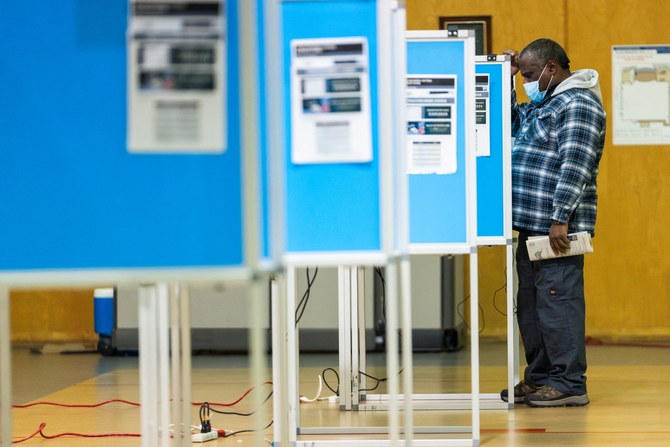
As we stand on the cusp of the 2024 US elections, it is evident that the country’s political landscape remains deeply divided along party lines. What is perhaps more intriguing than the division itself is the stark contrast in the issues that drive Democratic and Republican voters to the polls. This divergence in priorities has been a hallmark of American politics for decades, reflecting the complex interplay of history, ideology and societal dynamics.
The roots of this divergence can be traced back to the founding principles of the two major political parties. From their inception, the Democratic and Republican parties have represented distinct visions for the nation’s future that are rooted in their competing ideologies and values. While Democrats have traditionally championed progressive causes and social justice, Republicans have espoused conservative principles and fiscal responsibility.
Throughout American history, the issues that have dominated political discourse have varied significantly depending on the prevailing social, economic and cultural climate. From the abolition of slavery to the expansion of civil rights, from economic depressions to global conflicts, each era has brought its own set of challenges and priorities that have shaped the political landscape.
Yet, amid this ever-changing backdrop, specific themes have remained constant in the priorities of Democratic and Republican voters. Democrats have consistently focused on social welfare and civil rights issues, while Republicans have emphasized national security, limited government and individual freedom.
The reasons for this divergence are complex and varied. They are rooted in the ideological differences between the two parties and their respective voter bases’ diverse experiences and perspectives. Socioeconomic factors, geographic location and cultural background all shape voter priorities and preferences. Furthermore, the media and political discourses have played a significant role in amplifying and reinforcing these differences. The narratives presented by news outlets, pundits and political leaders often serve to entrench partisan divides and reinforce existing beliefs and attitudes.
Specific themes have remained constant in the priorities of Democratic and Republican voters
Dalia Al-Aqidi
While this divergence may present challenges for political unity and consensus-building, it also speaks to the vibrancy of democracy and the plurality of voices that contribute to the American national discourse.
Based on a comprehensive survey conducted last month by the Statista Research Department, insights emerged regarding the divergent priorities of Republican and Democratic voters.
At the forefront of Republican voters’ minds stands the immigration issue, which is commanding significant attention. A staggering 33 percent rank it as their primary political concern. This emphasis on immigration reflects the party’s long-standing commitment to border security, national sovereignty and upholding traditional American values. For many Republicans, the perceived influx of immigrants poses not only economic and security challenges, but also cultural and identity-related anxieties.
Conversely, the survey reveals a strikingly different perspective among Democratic voters, with immigration ranking significantly lower on their list of priorities. Only 5 percent of Democrats identified immigration as their foremost concern, indicating a stark contrast in the issues that resonate among the supporters of the two parties.
The immigration problem has garnered heightened attention recently, particularly following the significant developments that have taken place since President Joe Biden assumed office. The influx of millions of immigrants since his inauguration has amplified concerns and intensified debates surrounding immigration policy, enforcement and humanitarian considerations.
The topic of abortion has gained significant traction among Democrats, with it emerging as a key issue since the Supreme Court’s decision to overturn Roe v. Wade last year. This landmark ruling effectively transferred authority on the legality of abortions back to individual states, prompting a renewed focus on state-level policies and legislation surrounding reproductive rights.
Abortion will be a central issue for Democrats in the 2024 election, reflecting broader concerns about women’s rights and healthcare access. As states grapple with abortion legislation, Democrats will advocate for comprehensive reproductive healthcare and engage in political mobilization to gain more votes.
The economic landscape, with a spotlight on inflation, also holds significant sway over voters’ minds. Despite a relatively steady job market, consumer prices have soared in the US. Families are feeling the pinch, particularly at the grocery store, where prices have skyrocketed 25 percent since the onset of the COVID-19 pandemic. This economic strain shapes perceptions and priorities as voters weigh their options ahead of the upcoming election.
Although typically overshadowed by economic concerns, the significance of foreign policy in voters’ minds may prove to be a game-changer for both Biden and Donald Trump. There has been a noticeable shift in American attitudes, with an increasing number viewing foreign policy as one of the foremost issues confronting the federal government.
Recent events, such as the ongoing conflicts in Ukraine and Gaza, have heightened awareness and underscored the interconnectedness of global affairs with domestic interests. According to a recent Associated Press-NORC Center for Public Affairs poll, the number of voters prioritizing foreign policy has doubled compared to a year ago, signaling a growing recognition of its importance on the domestic stage.
While foreign policy and economic concerns dominate the election narrative, the specter of public safety and crime looms large for both Democrats and Republicans. Republicans and independent voters appear to harbor heightened anxieties regarding the state of crime and public safety within the country. This issue is poised to take center stage for these demographics, reflecting a growing apprehension about law enforcement, community security and the overall well-being of citizens.
With two unpopular candidates competing for the presidency, America finds itself at a crossroads, deeply divided over which path to choose. Despite the familiarity of both presidential hopefuls, the nation is grappling with the uncertainty of which leader can best address its pressing challenges. As voters weigh their options, the enduring polarization underscores the complexity of the political landscape. In a climate marked by competing visions and divergent priorities, the decision on the future course of the nation rests in the hands of the electorate.
Dalia Al-Aqidi is executive director at the American Center for Counter Extremism.











